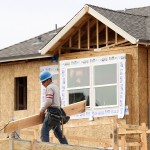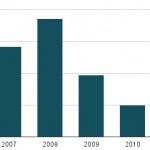Buying Trumps Renting In Boise’s Recovering Housing Market
It is, in general, cheaper to own than rent. That’s the broad finding of a recent report from real estate website Trulia.
How much cheaper? Assuming a 3.5 percent mortgage rate and 20 percent down payment, among other things, “buying is now 45 percent cheaper than renting in the 100 largest U.S. metros, on average – that’s a savings of $771 a month,” the report says.
Trulia doesn’t include Boise in its 100 largest metros, but company chief economist, Jed Kolko, walked through some of the numbers to consider. First, there are basic measures of the local housing market’s health, like the magnitude of the price decline in the housing bust, and price improvement in the last year. The basic picture is of a city that was hit hard by the housing downturn, but that now shows average to above average improvement. Prices, for example, rose by nearly 6 percent over the last year, more growth than most cities experienced.
Then there’s the rental market to consider. “One way to get at this is looking at the change in fair-market rent,” Kolko explains. That’s data the Department of Housing and Urban Development tracks. HUD shows fair-market rents grew by about 4 percent in Ada County over the last year, Kolko says.
In other words, local prices and local rents are going up, with home prices rising at a slightly higher rate. Still, Kolko says, the basic finding of the Trulia study should hold true. “The monthly cost of buying is much lower than the monthly cost of renting when we compare the same unit,” Kolko says. Moreover, Boise’s numbers shouldn’t place it at either extreme. The financial advantage of buying over renting should not be very great or very small, compared to the cities in the study.
The Atlantic‘s Richard Florida has a twist on the Trulia report, in a post to the magazine’s “Cities” blog. In short, his point is: price isn’t everything. “Overall, it is more expensive to own versus rent in richer, more educated, more expensive places — which of course makes basic economic sense,” he observes.


